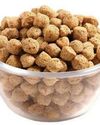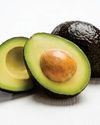
Trend beers with the rediscovered dry hopping, formerly known as “dry hopping”, change their taste very quickly when they absorb oxygen. But ordinary light beers are also particularly sensitive to oxygen. Darker beers, on the other hand, often show a considerable taste tolerance to oxygen levels above 0.1 mg/l.
Oxygen absorption during beer brewing begins when the malt is crushed and does not end when the beer leaves the brewery, because oxygen penetrates the seals of crown caps, for example, right up until the point at which the beer is consumed. Beer ingredients react so quickly with oxygen that dissolved oxygen measurements are required immediately after the respective processes such as tank filling, filtration or bottling. An oxidized beer with the typical changes in taste often has hardly any measurable oxygen content, and yet the quality losses are clear.
The use of additives such as bisulfite or ascorbic acid as oxygen scavengers is common in other countries outside of Germany, especially for filling PET bottles. Because these containers and the most commonly used closure made of PE or PP allow oxygen to migrate in relevant quantities in a short time. However, as an antioxidant for beer, ascorbic acid is a double-edged sword. Oxidation processes - not only in beer, but also in other beverages such as soft drinks or juices - are complex processes with many intermediate stages, and thus much more than the transfer of oxygen to a specific recipient molecule. Are the polyphenols in malt or hops beneficial antioxidants or harmful clouding agents? This is a chapter in itself. In order to meet this challenge, breweries are developing different approaches to quality assurance: from malts low in polyphenols to polyphenol-rich cone hopping or strategies for preservation through precipitation to reduction of polyphenols using PVPP.
This story is from the August 2023 edition of Food & Beverages Processing.
Start your 7-day Magzter GOLD free trial to access thousands of curated premium stories, and 9,000+ magazines and newspapers.
Already a subscriber ? Sign In
This story is from the August 2023 edition of Food & Beverages Processing.
Start your 7-day Magzter GOLD free trial to access thousands of curated premium stories, and 9,000+ magazines and newspapers.
Already a subscriber? Sign In

Therapeutic Use Of Indian Winter Cherry (Ashwagandha)
Ashwagandha is one of the most important herbs in Ayurveda, which is a traditional form of alternative medicine based on Indian principles of natural healing. Ashwagandha is a small, woody shrub in the Solanaceae family that grows about two feet in height.

The Dairy Chain Revolution: Ensuring Freshness and Efficiency
Dairy products are an integral part of the food processing industry, forming milk, cheese, yogurt, and butter are highly perishable and demand meticulous care to preserve their quality and safety throughout their journey from farm to consumer.

Plant-Based Proteins from Soybean: A Comprehensive Exploration
Introduction - In recent years, the global food landscape has witnessed a remarkable shift toward plant-based diets, driven by a growing awareness of health, environmental sustainability, and ethical considerations.

Avocado: The Green Ally in the Fight Against Diabetes
In a world inundated with processed foods laden with excessive sugars, salts, and artificial additives, rates of diabetes across the world have been rising over the past decades link.

Inspection Technology from KHS: Precision and early detection for holistic line thinking
KHS GmbH continuously develops and modernizes its inspection technology.

Packaging for the Future: How Aseptic Solutions are Transforming the Dairy Industry
Introduction - The Dairy Aseptic Packaging Market T is a dynamic and transformative sector within the rapidly evolving food and beverage industry.

Sidel introduces its breakthrough bottle washer with powerful dual technology - Hydra Ultrasonic
With beverage bottlers requiring a solution that reduces production costs while improving their environmental footprint, Sidel has launched its new bottle washer which combines chemical and ultrasound technology for the highest performance. Sidel will unveil Hydra Ultrasonic for the first time at the international trade show, BrauBeviale.

Revolutionizing Dairy Packaging: Technology & Innovations Shaping the Future
Dairy packaging plays a vital role in maintaining the quality and safety of a wide variety of products, including milk, butter, cheese, and yogurt.

Proost: Brewing Passion, Driving Innovation, Redefining Quality
In an exclusive conversation Mr. Tarun Bhargava, Co-Founder & CEO of Proost, speaks about the brand's inspiring journey, its unique approach to brewing, and the innovative strategies driving its success. From Proost's commitment to quality and sustainability to its adaptability in a dynamic market, Tarun shares insights into what makes Proost a standout in the beverage industry.

Non-Alcoholic Beverages: A Booming Industry Across Global Markets
The global non-alcoholic beverage market has been expanding steadily, with an estimated value of over USD 1 trillion as of 2023. This growth is expected to continue, fueled by a shift in consumer preferences toward healthier and more mindful consumption habits. The market encompasses a variety of products, including non-alcoholic beers, soft drinks, juices, and functional beverages like energy drinks and flavored waters.